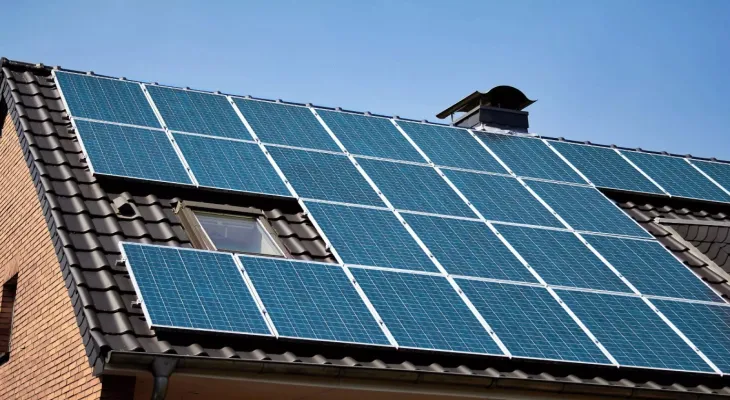Search here
Newspaper
Search here

Arab Canada News
News

Published: September 26, 2024
Residential solar energy in Canada is causing problems for insurance companies, some of which have begun withdrawing coverage for homes after solar panels are installed, claiming they incur additional costs when damaged due to extreme weather conditions or even when stolen.
Insurance companies in Canada are asking solar energy developers to implement strategies to address damages caused by severe storms and hail hitting solar panels on rooftops, according to a recent report reviewed by the specialized energy platform (based in Washington).
There's been alarm in the residential solar energy sector in Canada after one homeowner spoke about his insurance policy being withdrawn after he used a heat pump powered by solar panels.
The homeowner, Adam Szabo, was puzzled by the actions of CAA Insurance and expressed, "I was obviously confused, and I wonder what the company means? This doesn't make sense, does it?" according to a report published by CBC News.
Szabo shared his frustrations with others across Canada with the channel due to the issues that arose with insurance companies after solar panels were installed on homes, and many did not expect renewable energy to cause them confusion.
Insurance for residential solar energy is complicated
All Szabo wanted was to rely on renewable energy, enhance the value of his property, reduce environmental impact, and lower energy costs; however, he did not anticipate complications with his insurance company.
It seems that residential solar energy in Canada has become a problem conflicting with insurance companies' policies, which are more concerned about not bearing additional costs than about promoting renewable energy.
Concerns are growing about an increase in the withdrawal of insurance policies as Canadians increasingly turn to eco-friendly technologies, such as electric vehicles, heat pumps, and solar panels, to contribute to climate action.
Many homeowners adopting residential solar energy in Canada have discovered that renewable energy initiatives sometimes conflict with the policies and terms of insurance documents, according to a report published by Insurance Business.
Variations among insurance companies
Rob De Bruy, National Director of Consumer and Industry Relations at the Insurance Bureau of Canada (IBC), says that insurance companies determine the risks they want to cover in their policies to reduce potential losses.
Some companies include solar panels in standard homeowners' insurance policies, while others offer coverage for these panels as an addition to the policy.
Although it is generally rare for insurance companies to directly refuse coverage for solar panels, these panels may increase the value of the home, thereby raising replacement costs and risks associated with the home's electrical system, according to Brody.
Companies fear that installing residential solar energy in Canada may lead to increased failures in the electrical system, especially since dealing with electricity is often complex, and changes in the solar electrical system may cause different problems than those associated with systems connected to a central electricity grid.
Improper installation of solar panels on rooftops can lead to tearing and cause electrical damage during storms and heavy rain and other weather conditions.
The expertise of insurance companies appears limited in insurance claims related to solar panels and other renewable technologies, contributing to their increasing apprehension and caution regarding residential solar energy coverage in Canada, according to the Insurance Bureau of Canada (IBC).
The same justifications were what IBC provided to Szabo, who managed to secure insurance coverage for his home equipped with solar panels, but through another company called Pembridge Insurance, according to the report.
Comments